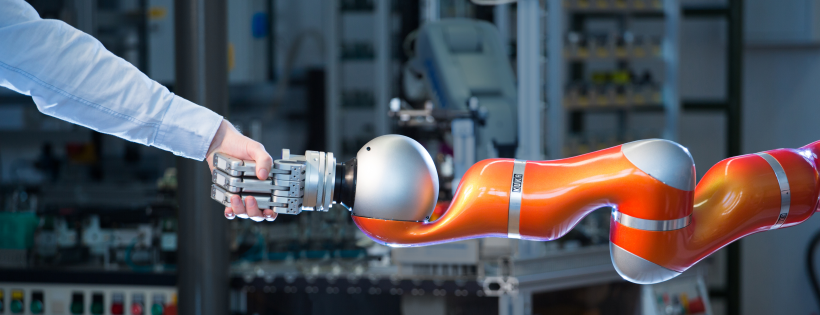6th IFAC Conference on Nonlinear Model Predictive Control
19th - 22nd August, Madison, Wisconsin (USA)
Overview
Nonlinear Model Predictive Control (NMPC) may sound like a subject only for experts, but it connects strongly to what many students are already learning. NMPC is used to design systems that can predict future behavior and adjust decisions in real time. Professional thesis writers from Thesisgeek.com agree that students in majors such as control engineering, electrical engineering, computer science, mechanical engineering, and applied mathematics often deal with these ideas. For example, a mechanical engineering student might study how to control the speed of a robot arm. A computer science student could learn how to use algorithms that make predictions based on data. Electrical engineering majors may use NMPC when working with power grids or renewable energy systems. Mathematics students can focus on the optimization problems that form the base of NMPC. Learning about NMPC gives students a chance to see how theory links to real machines, devices, and processes. It shows how math and coding can solve everyday challenges like saving energy, reducing waste, or keeping systems safe. By exploring NMPC in projects and research, students gain skills that connect classroom study with modern industry needs. This makes NMPC a valuable area for students who want careers in technology, engineering, and applied sciences.
Student NMPC Project Ideas
| Project idea | Major fit | Real world goal | Key tools | What you learn | Difficulty (1–5) | Time |
|---|---|---|---|---|---|---|
| Room temperature control | Mechanical, Electrical | Keep a room at set temperature with low energy use | Python, NumPy, simple thermal model | Modeling, constraints, cost tuning | 2 | 2–3 weeks |
| Self balancing robot | Mechanical, Mechatronics | Keep a two wheel robot upright on bumps | MATLAB or Python, microcontroller | State estimation, fast MPC loop | 3 | 4–6 weeks |
| Drone height control | Aerospace, Electrical | Hold a safe altitude while saving battery | PX4 sim, Python, simple quad model | Linearization, actuator limits | 3 | 4–6 weeks |
| Autonomous cruise with gap keeping | Automotive, Computer Science | Follow a lead car at safe distance | CARLA sim, Python | Prediction, multi objective cost | 3 | 3–5 weeks |
| Robotic arm pick and place | Mechanical, Robotics | Move fast while avoiding joint limits | ROS, Python, simple arm model | Trajectory MPC, constraints | 4 | 5–8 weeks |
| Battery thermal control | Electrical, Energy | Keep pack within safe temperature range | MATLAB or Python, RC thermal network | System ID, safe setpoints | 3 | 3–5 weeks |
| Smart greenhouse climate | Agronomy, Mechanical | Balance plant growth and energy cost | Python, sensors, simple climate model | Economic MPC, disturbance handling | 3 | 4–6 weeks |
| Traffic light timing for one junction | Civil, Applied Math | Cut queue length and delay | Python, SUMO sim | Hybrid systems, integer constraints | 4 | 5–7 weeks |
| Supply tank level control | Chemical, Process | Keep liquid level safe during demand changes | MATLAB or Python, first order tank model | Nonlinear dynamics, constraints | 2 | 2–3 weeks |
| HVAC for small building zone | Mechanical, Energy | Track comfort while cutting peak power | Python, Modelica or simple RC model | Economic MPC, demand limits | 4 | 6–8 weeks |
| Quadcopter path tracking in wind | Aerospace, Robotics | Follow a path with gusts | Gazebo or AirSim, Python | Disturbance rejection, receding horizon | 4 | 6–8 weeks |
| Inverted pendulum on a cart | Mechatronics, Applied Math | Stabilize and move to target | MATLAB, Simulink, cart model | Linear MPC vs nonlinear MPC | 3 | 3–5 weeks |
| Energy aware building lighting | Electrical, CS | Dim lights with daylight while keeping comfort | Python, simple light model, sensors | Constraints, soft penalties | 2 | 2–4 weeks |
| Route choice with EV range limits | Transport, CS | Pick routes that meet charge limits | Python, map API mock, EV model | Mixed constraints, forecasts | 3 | 4–6 weeks |
| Chemical reactor temperature control | Chemical | Track setpoint and avoid runaway | MATLAB or Python, CSTR model | Safety constraints, tuning | 4 | 6–8 weeks |
Model predictive control (MPC) is indisputably one of the advanced control techniques that has significantly affected control engineering practice with thousands of controllers implemented in various fields, spanning from process industry to automotive and robotics. This is due to its unique ability to handle constraints, take preview information about disturbances and set point changes into account and optimize performance. Furthermore, MPC allows the consideration of various types of dynamics, from linear to nonlinear, discrete to continuous, as well as on-line adaptation of models and parameters. The research community on MPC is very active, with hundreds of papers published every year. Over the past decades many theoretical, as well as implementation results have been achieved.
The IFAC Conference on Nonlinear Model Predictive Control (NMPC) aims at bringing together researchers interested and working in the field of MPC, from both academia and industry. This allows to reflect and establish the current state-of-the-art and focus the future development of the MPC field towards relevant directions.
Major conference topics are:
- Uncertainty and model predictive control
- Stability and recursive feasibility of nonlinear model predictive control
- Economic model predictive control
- Model predictive control in the cloud
- IoT and model predictive control
- Learning and model predictive control
- Stochastic model predictive control
- Model predictive control for hybrid systems
- Moving horizon estimation
- Model predictive control for large scale systems
- Hierarchical and decentralized predictive control
- Embedded and real-time feasible predictive control
- Optimization and model predictive control
- Model predictive control of mechatronic systems
- Heating, ventilation, air conditioning (HVAC) control
- Energy systems and model predictive control
- Autonomous systems and model predictive control
- Model predictive control for autonomous driving
- Model predictive control for aeronautic applications
- Model predictive control for automotive systems
- Process control and model predictive control
- Model predictive control for medical applications
- Biotechnology and model predictive control
- Model predictive control for smart manufacturing and industry 4.0
Program
NMPC features a varied Program. Following the tradition of the NMPC Conference, the event will be single track, consisting of plenary, semi-plenary and contributed presentation. To promote participation and foster student submissions, poster sessions will be included in the program. Furthermore, pre-conference short courses will be offered. Industrial participation will be encouraged by extended abstract submissions, which will not appear in paperplaza, but which will be part of the book of abstracts.
Organization
The conference Nonlinear Model predictive Control (NMPC) is jointly organized by the International Federation of Automatic Control (IFAC), sponsored by the Technical Committee on Optimal Control (2.4).
History of NMPC
The 6th IFAC Conference on Nonlinear Model Predictive Control is the 6th meeting on the assessment and future directions of model predictive control (MPC) since 1998. The first conference was organized in Ascona, Switzerland, 1998; followed by the conferences in Freudenstadt-Lauterbad, Germany, 2005; Pavia, Italy, 2008; the first IFAC NMPC conference in Noordwijkerhout, the Netherlands, 2012; and 2015 in Seville, Spain.









